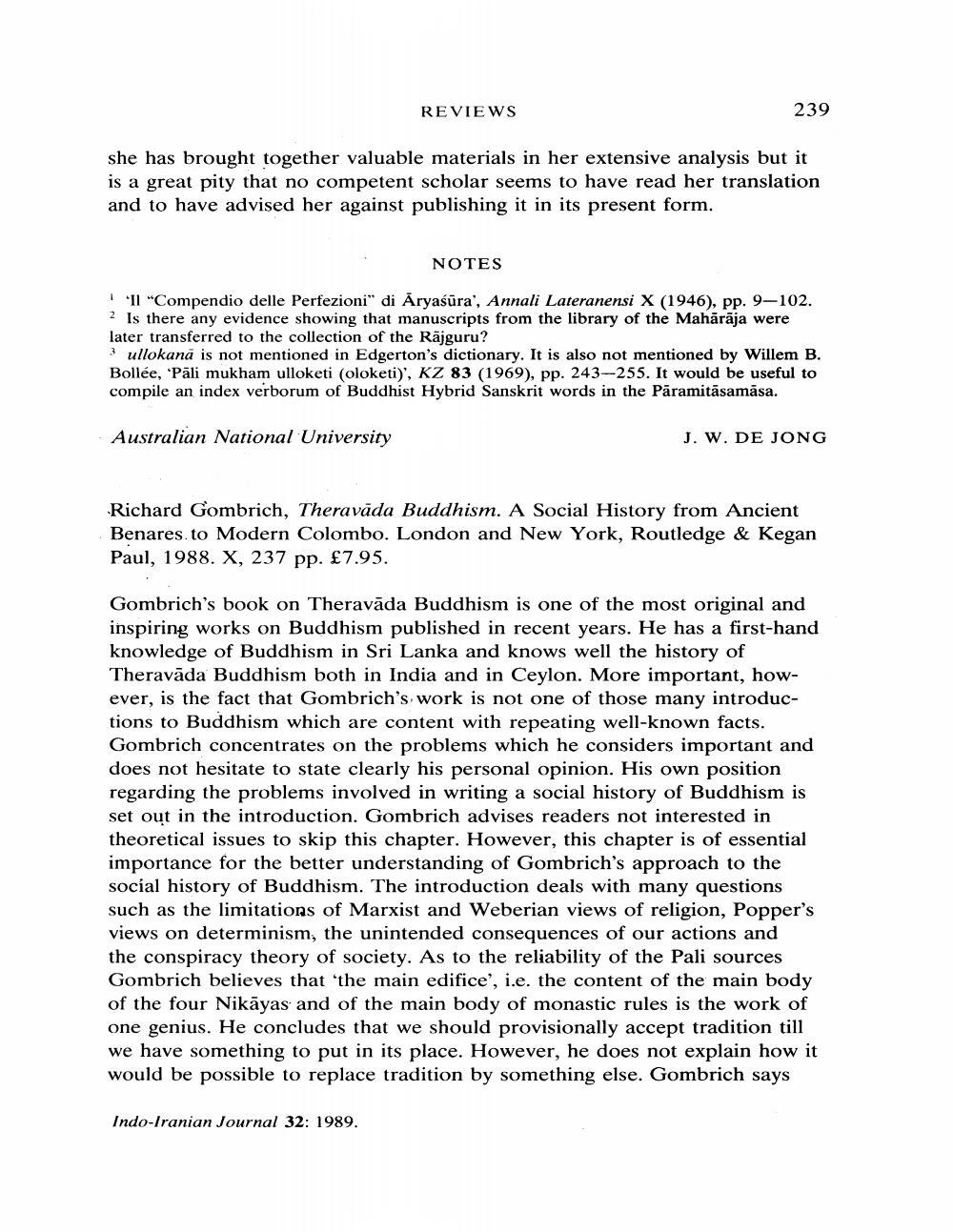________________
REVIEWS
239
she has brought together valuable materials in her extensive analysis but it is a great pity that no competent scholar seems to have read her translation and to have advised her against publishing it in its present form.
NOTES
I 'Il "Compendio delle Perfezioni" di Aryaśūra', Annali Lateranensi X (1946), pp. 9-102. 2 Is there any evidence showing that manuscripts from the library of the Mahārāja were later transferred to the collection of the Rajguru? 3 ullokanā is not mentioned in Edgerton's dictionary. It is also not mentioned by Willem B. Bollée, Pāli mukham ulloketi (oloketi)', KZ 83 (1969), pp. 243-255. It would be useful to compile an index verborum of Buddhist Hybrid Sanskrit words in the Paramitāsamāsa.
Australian National University
J. W. DE JONG
Richard Gombrich, Theravāda Buddhism. A Social History from Ancient Benares. to Modern Colombo. London and New York, Routledge & Kegan Paul, 1988. X, 237 pp. £7.95.
Gombrich's book on Theravāda Buddhism is one of the most original and inspiring works on Buddhism published in recent years. He has a first-hand knowledge of Buddhism in Sri Lanka and knows well the history of Theravāda Buddhism both in India and in Ceylon. More important, however, is the fact that Gombrich's work is not one of those many introductions to Buddhism which are content with repeating well-known facts. Gombrich concentrates on the problems which he considers important and does not hesitate to state clearly his personal opinion. His own position regarding the problems involved in writing a social history of Buddhism is set out in the introduction. Gombrich advises readers not interested in theoretical issues to skip this chapter. However, this chapter is of essential importance for the better understanding of Gombrich's approach to the social history of Buddhism. The introduction deals with many questions such as the limitations of Marxist and Weberian views of religion, Popper's views on determinism, the unintended consequences of our actions and the conspiracy theory of society. As to the reliability of the Pali sources Gombrich believes that 'the main edifice', i.e. the content of the main body of the four Nikāyas and of the main body of monastic rules is the work of one genius. He concludes that we should provisionally accept tradition till we have something to put in its place. However, he does not explain how it would be possible to replace tradition by something else. Gombrich says
Indo-Iranian Journal 32: 1989.




